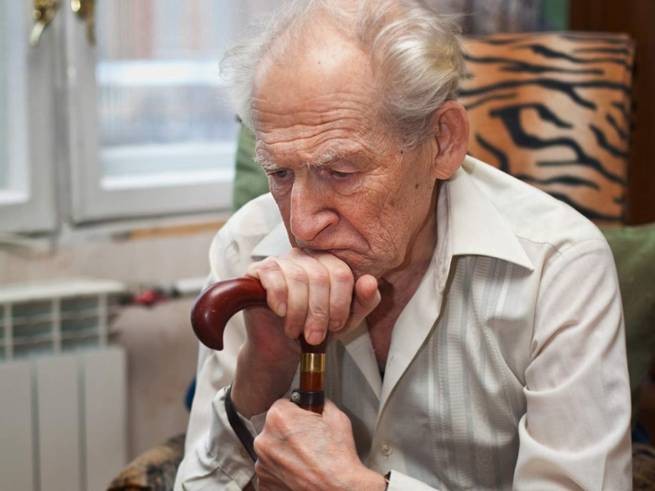Ukraine plans to adjust the list of grounds for terminating pension payments, including for pensioners living abroad. Of course, in the direction of increase. At the same time, some upcoming innovations are, to put it mildly, surprising.
Edition “Apostrophe” understood in the new legislative initiatives proposed by the Verkhovna Rada, and why some of them are simply unacceptable for both pensioners and the state. What “improvements” await Ukrainian pensioners in the near future?
New reasons not to pay pensions
After the Russian invasion on February 24, 2022, the process of terminating numerous treaties that linked it with the occupying country intensified in Ukraine. For example, those that regulated the payment of pensions for citizens who once worked in the Russian Federation were terminated.
In addition, Ukraine withdrew from the agreement on guarantees of the rights of citizens of member states of the Commonwealth of Independent States (CIS) in the field of pensions. Because of this, the grounds for assigning pensions to citizens who acquired work experience in Armenia, Belarus, Kazakhstan, Tajikistan, Kyrgyzstan, Turkmenistan, and Uzbekistan disappeared.
There was an urgent need to resolve the issue by internal Ukrainian law. The corresponding document was submitted to the Verkhovna Rada by the Cabinet of Ministers and has already been adopted in the first reading. After the final adoption of the law, signed by the president, pensioners who worked in the former republics of the USSR will be able to receive the same pensions as before. But there are also exceptions.
Persons who, while staying in the occupied territories, served in the Russian army, security agencies, the Ministry of Internal Affairs or in any government bodies formed by the occupation administrations after February 19, 2014, will not have their work experience counted. And not only for the periods when the person was directly in the service of the aggressor, but in general for the entire period of occupation. In other words, if a person worked for a year in the local administration, and then quit and moved to another job, his work experience will not be counted either there or there when calculating his pension.
The bill also contains a number of provisions that relate to other issues of pension provision and raise many questions, the publication writes. Pavel Rozenko, former Minister of Social Policy and Deputy Prime Minister of Ukraine, says:
“Recently, our legislation has often used a technique when the bill is devoted to the right issues and contains the right norms, but in addition to them, the text includes provisions that are not related to the topic stated in the title and are controversial from the point of view of public perception “.
Who will be deprived of their pension?
The bill expands the list of grounds for termination of pension payments, in particular, in the case of:
- temporary residence abroad at the request of a pensioner to terminate the payment of a pension;
- if a person is recognized as missing or declared dead in accordance with the procedure established by law;
- if the pensioner has been granted the status of a person missing under special circumstances, in accordance with the law of Ukraine “On the legal status of persons missing under special circumstances”;
- if a pension has not been received for 6 months in a row in organizations that pay and deliver pensions, or if there have been no expenditure transactions in bank institutions for 6 months in a row on current accounts to which pensions are paid;
- if pension recipients have not undergone physical identification in cases provided for by law.
And now a little about the nuances. Only the clauses about missing persons seem logical. If a person is absent for a long time, and it is not known where he is or whether he is alive, then the termination of pension payments until the circumstances are clarified does not raise any questions. The remaining provisions are not so clear.
For example, it is difficult to imagine a person who is abroad, who of his own free will will go to the Ukrainian consulate and write a statement: “I ask you not to pay me any more pension.” Presumably this clause was included in the law for some “secret” purpose. Perhaps in the future the authorities intend to somehow encourage fellow citizens to write such statements?
The most questions and indignation are caused by the provisions on the termination of payments if a person has not withdrawn his pension from the account within 6 months. Moreover: the amount already paid during this time will be forcibly withdrawn from the pensioner’s account and transferred to the Pension Fund. Rosenko says:
“Such a provision is frankly unconstitutional, because the pension paid to a citizen is his property. And, according to the constitution, he has the right to dispose of it in any way he sees fit. And the state has no right to in any way tell him how he should do this: withdraw money from an account or save, make payments, transfer to other people, and so on.”
According to the bill, if a citizen discovers that pension funds have disappeared from his account, he has the opportunity to apply to the Pension Fund for the return of funds. And if the check establishes that there are such grounds, the money will be returned to the account. Rosenko comments:
“Thus, the state immediately puts the pensioner in the position of a supplicant. It first takes away his money without warning, and then the pensioner must go to the Pension Fund, stand in line, prove something to the officials and ask to return the money taken by the state to him. If the official agrees with the evidence , he may decide to return the selected funds. Or he may not accept…”
The expert explains that there are many life situations when a person may not use his retirement account for a certain time. For example, if he lives with children who provide for his vital needs. Former people’s deputy, expert on social issues Andrei Pavlovsky, adds:
“Or, for example, a person remained in the occupied territories. He is deprived of the opportunity to use a Ukrainian card; leaving for free territory is associated with a risk to his life. But he still has the right to a pension and to be able to use the money in his account after de-occupation , and not stand in line at the Pension Fund, trying to return what the state took from him.”
Pavel Rozenko also emphasizes that due to this provision of the bill problems may arise for the heirs of deceased pensioners:
“In order to formalize an inheritance, it takes more than six months. Meanwhile, the funds lie idle in the account. And, according to the new law, the state will simply take them away. Therefore, when the heirs finally finish completing the necessary documents, they will find that the money is already no. And they will be forced to go through difficult bureaucratic procedures in order to return them. Moreover, there is no confidence that these efforts will yield results.”
The ambiguous provisions of the law raise many questions – why? Presumably, in this way the government is trying to save money from the Pension Fund and create a “fuse” so as not to pay pensions to people who have already died. Rosenko says:
“But this is a fictitious problem. We have never had any problems with this. Local authorities that register the fact of death automatically report this to the Pension Fund. In 2015-2017, I, as a minister, verified this system. And there was no there is practically not a single case when it did not work.”
Theoretically, of course, there may be certain schemes where local officials hide the facts of the death of pensioners in order to pocket payments. But this is already a crime, which is provided not by pension legislation, but by the Criminal Code, reminds Rozenko:
“In addition, the government’s proposed rule does not solve this problem, because where such a scheme exists, money is withdrawn from the account on time and in full.”
For pensioners living outside of Ukraine
The bill introduces a procedure for physical identification of pensioners abroad. Once a year, each of them will have to attest to their identity: personally provide documents to the consular offices of Ukraine or on the electronic services portal of the Pension Fund using an electronic signature generated in the Diya application. If a citizen does not pass such identification within a year, this will become grounds for termination of payment. Pavel Rosenko explains:
“The logic of such a decision is clear. Today our citizens are scattered across many countries of the world. And we cannot count on the authorities of all these countries to inform the Ukrainian government about their death. Therefore, we have to introduce periodic identification in order to understand who needs to be paid pension.”
However, technically this will not be so easy. Millions of people left Ukraine. In some countries, the number of Ukrainian pensioners can be measured in tens and hundreds of thousands. Andrey Pavlovsky says:
“It is quite difficult to count on pensioners taking advantage of electronic opportunities en masse. Many of them do not have sufficiently advanced smartphones. In addition, older people often have difficulty mastering new technologies. Therefore, many of them will be forced to personally contact Ukrainian consulates. And “In countries where there are many of our pensioners, this could lead to the formation of huge queues. Therefore, it will be necessary to create a special infrastructure and increase the staff of consulates to carry out this procedure. However, it is unlikely that the government will do this.”
The expert is convinced that the new norms, once introduced into legislation, will cause an avalanche of lawsuits from pensioners whose pensions will be taken away or payments will be stopped due to the inability to complete identification on time:
“And previous experience shows that in 90% of cases the court takes the side of the pensioner. However, the authorities, as a rule, do not implement the decisions of the courts – up to the Supreme. Therefore, pensioners will appeal to the European Court of Human Rights. There they are also with a probability of 90 % will win.”
So if the government is trying to save budget funds with the help of new regulations, the result will most likely be the opposite. And the state will have to spend additional money on supporting numerous lawsuits, and then pay compensation to the victims ordered by the courts.
Many Ukrainians living in Europe and, in particular, in Greece, have already encountered problems when receiving pensions in Ukraine by a trusted person using the appropriate document. Despite the fact that the power of attorney was issued for several years and is still valid, payments are stopped if there is no confirmation that the pensioners are “still alive.” To avoid unpleasant problems, go through identification using one of the above methods – at the consulate or using an electronic signature and the “Diya” application.







More Stories
ProNews: The government is methodically destroying the healthcare system in order to transfer it to the private sector
May Day strikes throughout Greece, operating hours of public transport are limited to the maximum (additions are being added)
Who likes an adventure holiday?